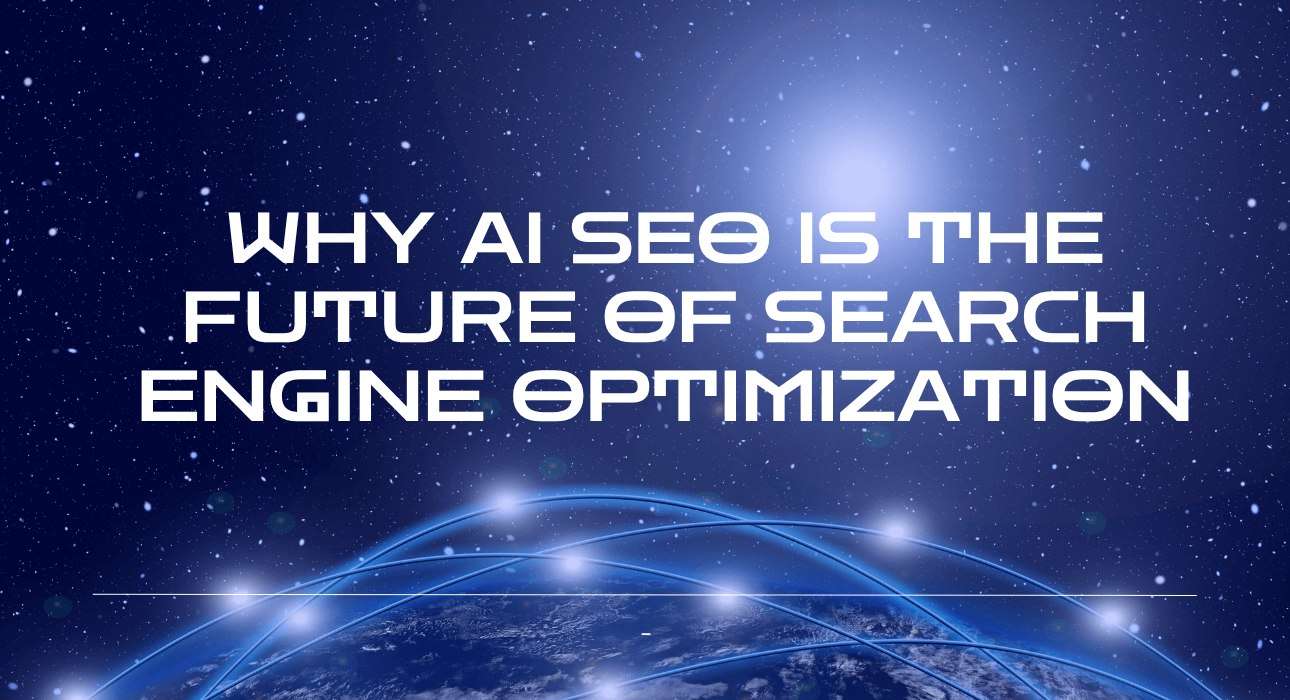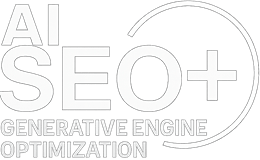Cursor
mode
SEO PLUS GEO
Why AI SEO is the Future of Search Optimization

As search engines evolve into AI-powered systems, traditional SEO practices are being reshaped to match intelligent algorithms that understand context, intent, and behavior. AI SEO leverages machine learning, natural language processing, and automation to optimize content beyond keyword placement. This transformation marks the beginning of a smarter, more adaptive approach to search. Here's why AI SEO is not just a trend but the future of search optimization.
Smarter Understanding of Search Intent
AI enables search engines to interpret complex queries, user context, and nuanced intent. AI SEO adapts content to align with this understanding, making optimization more intelligent and effective.
Contextual Content Matching
AI-powered search focuses on what users mean, not just what they type. AI SEO ensures content is relevant to the intent behind the search, improving ranking and engagement.
Semantic Search Optimization
Through NLP, AI SEO focuses on concepts and entities rather than simple keyword repetition. This allows content to rank for a broader range of queries with semantic relevance.
Behavioral Pattern Recognition
AI can predict user needs based on browsing history and behavior. AI SEO helps tailor content experiences that match user expectations and increase conversion likelihood.
Automation and Scalability
AI SEO automates repetitive tasks like keyword analysis, content optimization, internal linking, and performance monitoring, allowing marketers to scale strategies with greater precision and speed.
Automated Content Optimization
AI tools can analyze top-ranking content and suggest changes in real time, from meta descriptions to heading structures, saving hours of manual work.
Scalable Campaign Management
AI-driven platforms manage multi-page SEO campaigns, auto-generate insights, and implement recommendations at scale without human error.
Faster Decision Making
With AI, data from search trends, competitor activity, and user signals can be processed instantly, enabling faster, data-backed optimization strategies.
- AI SEO +GEO Services
- SEO Services
- Social Media Services
- Website Services
- Ads & Campaign Services
- Reach Us
Enhanced Personalization and UX
AI SEO focuses not only on ranking but also on delivering personalized user experiences. It enhances relevance by adapting content and site experiences to individual user profiles.
Dynamic Content Delivery
AI enables websites to deliver different content versions based on user type, behavior, or location, significantly improving engagement and satisfaction.
UX Signals Optimization
AI SEO analyzes click-through rates, bounce rates, and session duration to refine UX and increase rankings by keeping users engaged.
Voice and Visual Search Compatibility
AI SEO prepares content for voice-based queries and visual search, which are becoming mainstream through smart assistants and mobile apps.
Future-Proofing Against Algorithm Changes
AI SEO adapts to real-time algorithm updates by analyzing changes and adjusting strategies instantly. It ensures your website remains compliant and competitive.
Real-Time Algorithm Adaptation
AI tools monitor SERP fluctuations and automatically adjust tactics to match the latest algorithm behavior, reducing ranking volatility.
Predictive SEO Insights
AI forecasts trends and keyword performance, allowing marketers to create proactive strategies rather than reactive ones.
Content Lifecycle Optimization
From creation to update, AI tracks content performance and signals when to refresh, repurpose, or retire content for maximum impact.
Conclusion – Why AI SEO Is the Way Forward
AI SEO represents the evolution of traditional optimization into a smarter, data-driven, and user-centric discipline. As search becomes more conversational, contextual, and personalized, AI is the only way to keep up with the pace of change. Whether you're optimizing for voice, SGE, or future AI-powered engines, adopting AI SEO ensures your strategy is future-ready, scalable, and impactful. The future of search belongs to those who evolve with intelligence — and that future is already here.



